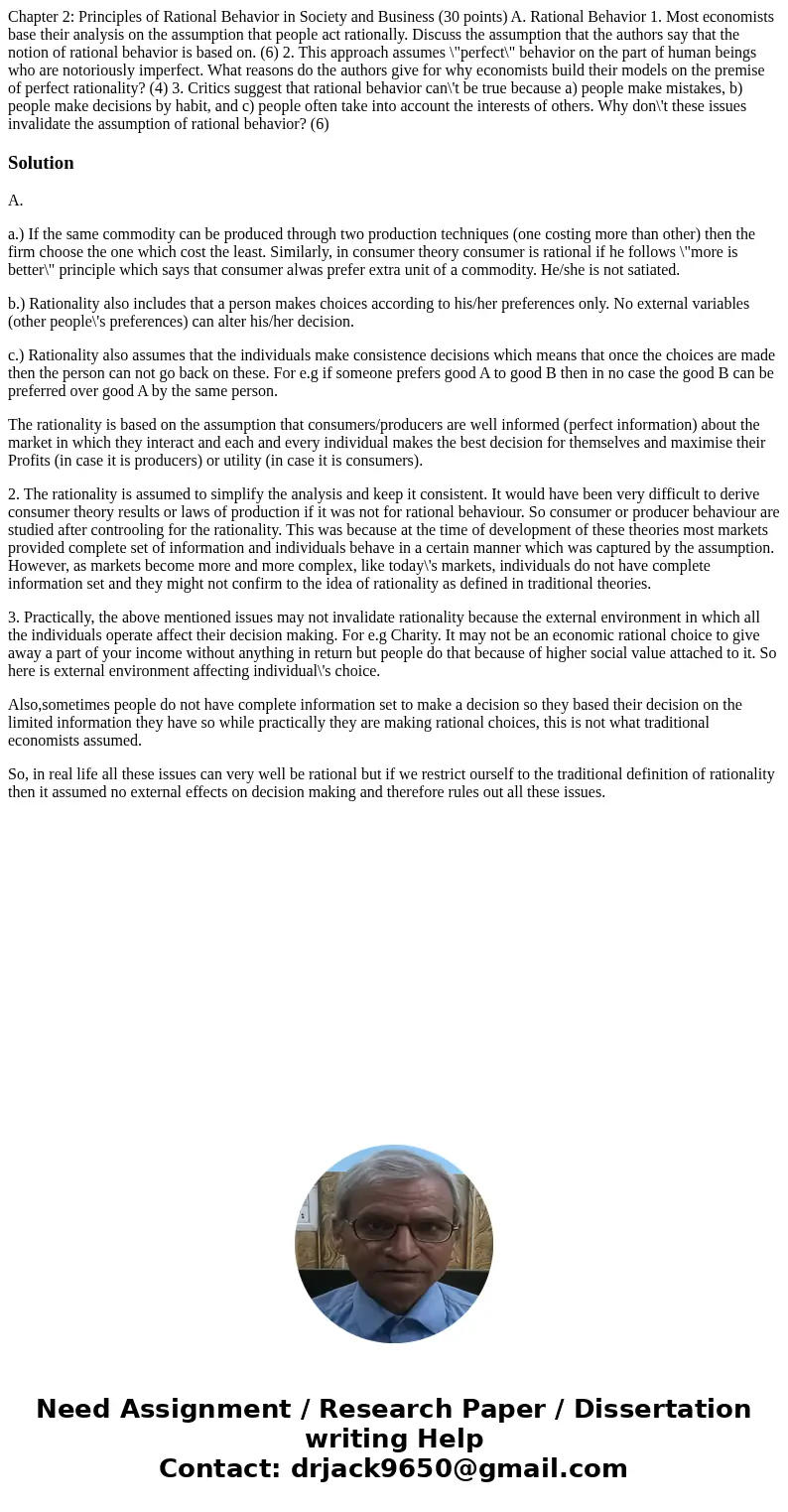Chapter 2 Principles of Rational Behavior in Society and Bus
Solution
A.
a.) If the same commodity can be produced through two production techniques (one costing more than other) then the firm choose the one which cost the least. Similarly, in consumer theory consumer is rational if he follows \"more is better\" principle which says that consumer alwas prefer extra unit of a commodity. He/she is not satiated.
b.) Rationality also includes that a person makes choices according to his/her preferences only. No external variables (other people\'s preferences) can alter his/her decision.
c.) Rationality also assumes that the individuals make consistence decisions which means that once the choices are made then the person can not go back on these. For e.g if someone prefers good A to good B then in no case the good B can be preferred over good A by the same person.
The rationality is based on the assumption that consumers/producers are well informed (perfect information) about the market in which they interact and each and every individual makes the best decision for themselves and maximise their Profits (in case it is producers) or utility (in case it is consumers).
2. The rationality is assumed to simplify the analysis and keep it consistent. It would have been very difficult to derive consumer theory results or laws of production if it was not for rational behaviour. So consumer or producer behaviour are studied after controoling for the rationality. This was because at the time of development of these theories most markets provided complete set of information and individuals behave in a certain manner which was captured by the assumption. However, as markets become more and more complex, like today\'s markets, individuals do not have complete information set and they might not confirm to the idea of rationality as defined in traditional theories.
3. Practically, the above mentioned issues may not invalidate rationality because the external environment in which all the individuals operate affect their decision making. For e.g Charity. It may not be an economic rational choice to give away a part of your income without anything in return but people do that because of higher social value attached to it. So here is external environment affecting individual\'s choice.
Also,sometimes people do not have complete information set to make a decision so they based their decision on the limited information they have so while practically they are making rational choices, this is not what traditional economists assumed.
So, in real life all these issues can very well be rational but if we restrict ourself to the traditional definition of rationality then it assumed no external effects on decision making and therefore rules out all these issues.

 Homework Sourse
Homework Sourse